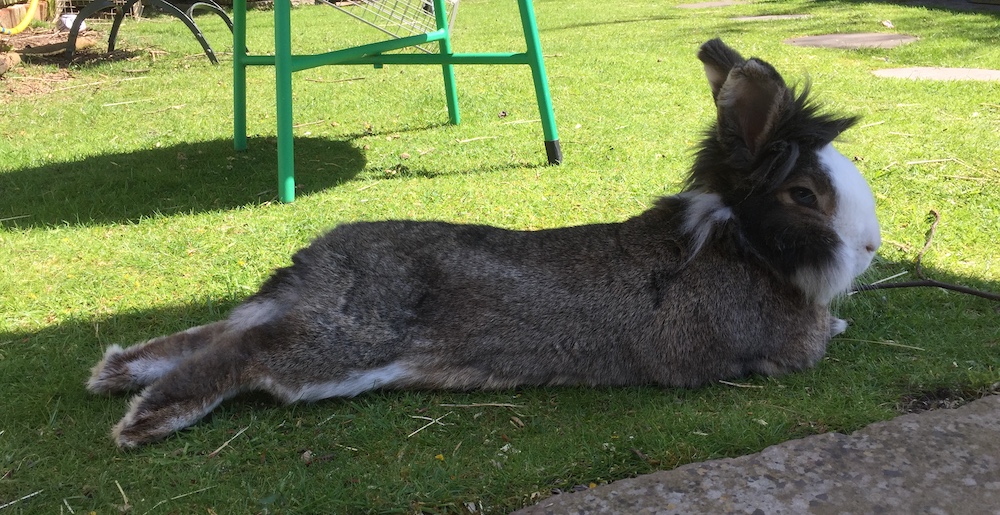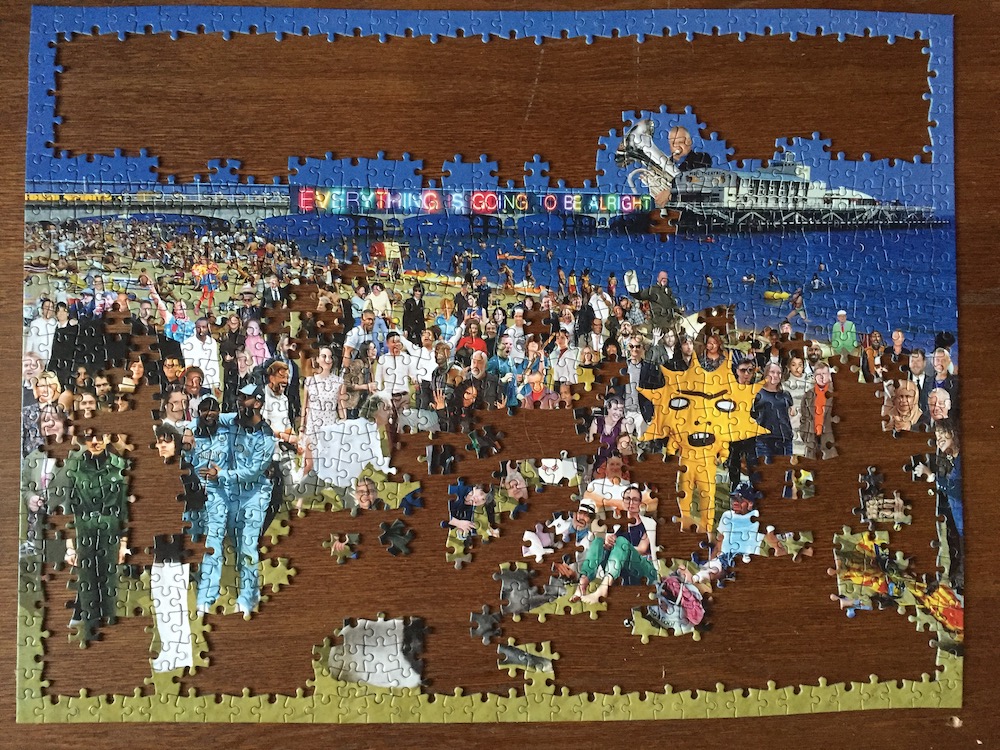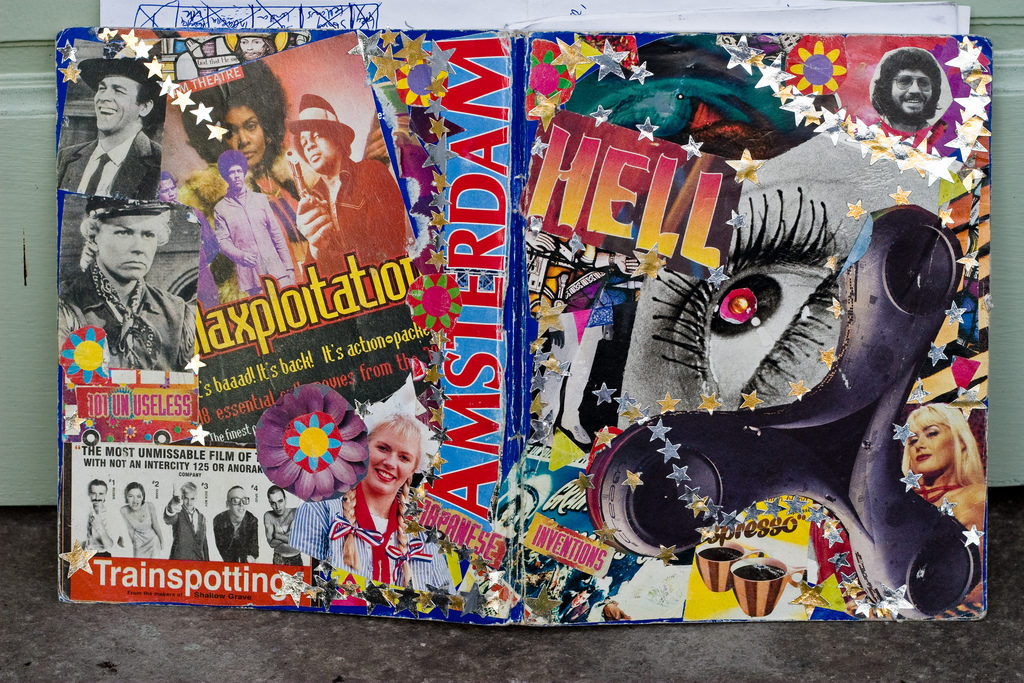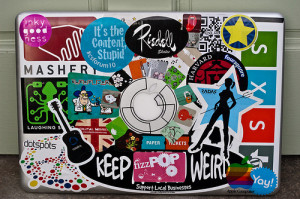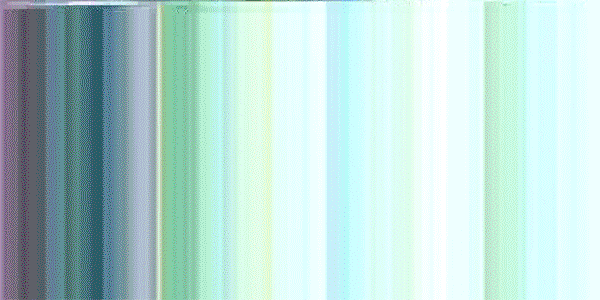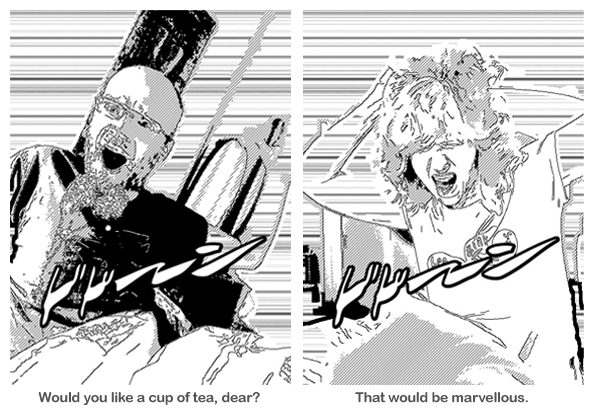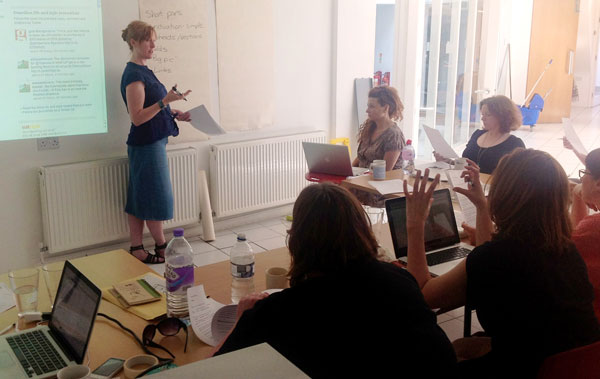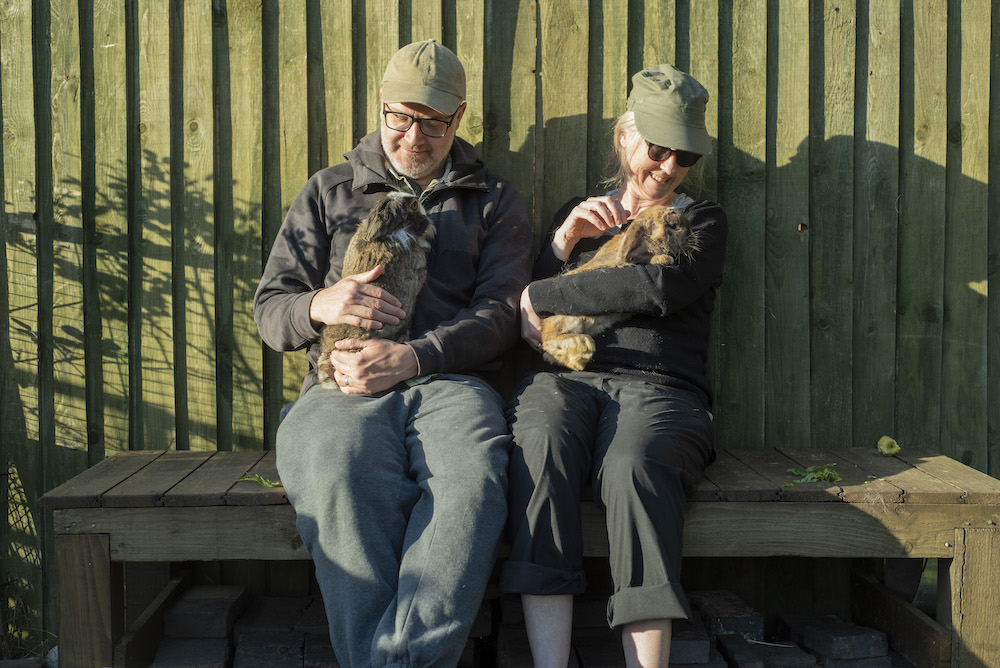
Tonight I thought I'd rope Pete in and jointly write about two technology-based efforts to help with coronavirus study and research that we've been involved with.
We each sat on our sofas and typed… to music by a band called Felt (an indie pop band, formed in 1979 in Water Orton, Warwickshire). In case you wanted to picture the scene.
Pete – scientific protein modelling via Folding@Home
About three years ago, when I was exploring the artistic potential of AI systems, I bought a computer with a fairly powerful graphics processor, or GPU. These are designed to render those detailed 3D games the kids play these days, and they do this by doing lots and lots of simple maths at an incredible speed. So if you need to do lots and lots of simple maths for some other reason they can be repurposed for that, too. I no longer do anything with AI systems, because the artistic potential never really emerged for me, but I still have this computer with its fairly powerful GPU, just sitting there.
Mid-April, and while doomscrolling through the coronavirus news, something catches my eye. It's a project called Folding@Home where people run calculations on their home or business computers during idle periods (like when you go for lunch or are just typing text and all that processing potential is just sitting there) on behalf of scientific researchers attempting to cure diseases. They do this by building models of the the proteins that make up viruses and the like so they can test potential cures. Specifically they need to model how the proteins "fold", hence Folding@Home.
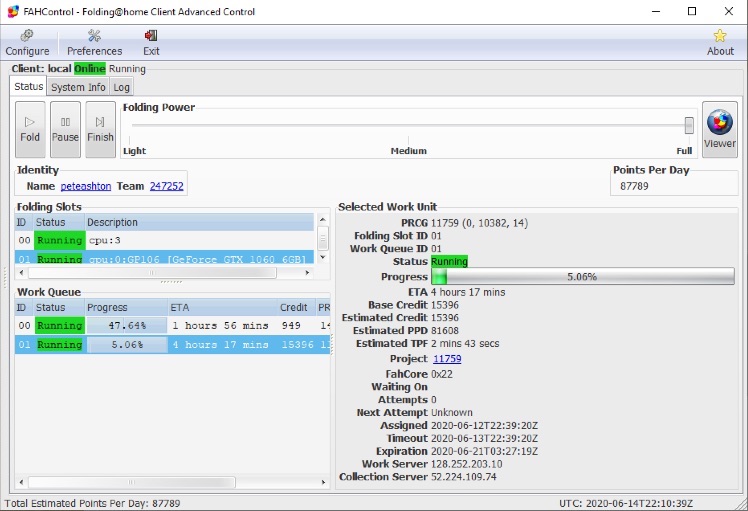
To get involved you download some lightweight software which in turn downloads a job to process. This can take a few hours or a couple of days and when it's done the results are uploaded for the scientists to play with and you get some points! Other than putting you on a leader board the points mean nothing, but what the hell! Points! On its own your contribution is tiny, but when you combine hundreds or thousands of tiny contributions you get an incredibly powerful computer that would impossible for any one institution to build.
Folding@Home has been running since 2007 so is pretty vintage and the interfaces can be somewhat dated, but the urgent need to understand how this novel coronavirus works has seen take-up soar to the point where, for a short while, they ran out of jobs, which is a nice problem to have. After reading the article I downloaded it to my MacBook and ran a couple of jobs.
Then I remembered I had this computer with a fairly powerful GPU, just sitting there. I wondered if it would run these jobs any faster, and by golly it could. In fact there were plenty of jobs specifically designed for GPUs and the points you were rewarded with… Let's just say that out of 2,717,135 contributors I'm number 192,903. In other words, in the top 7% with a score of 1,229,401. And if you're reading this in the future you can check my progress on this page.
I take no pride in this. All I do is switch the computer on and leave it running all night. It's burning electricity, of course, but my expenses are way down thanks to lockdown and we use an eco supplier. Have I made a difference? I have no bloody idea. But does the humble ant, carrying his piece of leaf, know what difference he makes to the nest? What I do know is the ant doesn't get a gnarley certificate. Sucka!
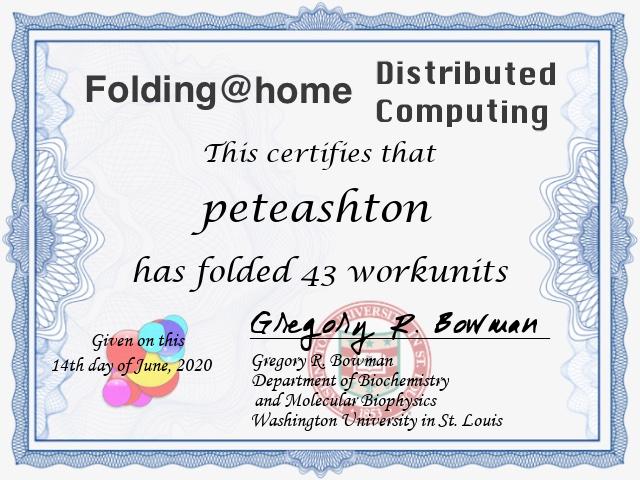
Fiona – daily self-reporting via Zoe C-19 app
Every day I get a loud ping from my Zoe C-19 daily reporting app on my phone. I answer two questions: Have you had a Covid-19 test? (yes/no) and How do you feel physically right now? (normal/not quite right). It takes a few seconds and I've been self-reporting since it launched back in March. The aim is to study the symptoms and also track the spread of the virus.
Over 3.8 million others have downloaded the app and are also reporting regularly. It is currently the largest public science project of its kind anywhere in the world, with the data being analysed in collaboration with King's College London researchers.
As someone with a data privacy interest, especially where health data is concerned, I was particularly impressed with their data policy transparency and upfront ease of deleting your data. And it has medical pedigree.
It is endorsed by the Welsh Government, NHS Wales, the Scottish Government and NHS Scotland. And it is led by Prof Tim Spector, professor of genetic epidemiology at King's College London and director of Twins UK, a registry of 12,000 twins with one of the richest collections of genotypic and phenotypic information on twins worldwide, apparently.
Data is also published daily to its website: https://covid.joinzoe.com/data. You can zoom and pan around a map to see how different regions are affected. Birmingham, for example, has 8,400 contributors with an estimated 0.9% of people with Covid symptoms.
It also gathers other data, which shows 4,900 daily new cases of Covid (from the app + swab tests) across the UK – new daily Covid infections fell by almost a half in a week, although this does exclude care homes.
Following the mass protests in the past fortnight, I wrote about feeling conflicted on the risks so it was interesting when researchers tried to use app data to answer the question: "Should I quarantine after protesting?"
Based on their data they estimate that one in 200 people are affected with Covid in the UK population at this point. Of these, one in 400 people you meet are potentially infectious and with mild or no symptoms. Based on mitigated risks, it does further maths and concludes: protestors have a one in 800 chance of themselves becoming infected with Covid-19, although this is likely to be higher in the north (one in 400) and lower in the south (one in 1600) due to the regional differences in number of cases. Ultimately it concludes it is best to err on the side of caution and ideally stay home for a week and avoid meeting others to help slow any potential spread of the virus.
In summary, I do take some pride in keeping this up. It feels as if it is directly useful and providing near real-time data. I think there is great potential for data gathering, done safely, to provide a way out of ongoing lockdowns and a second wave of this virus.
I'm afraid there is no certificate, though. Helping is its own reward, suckas.
>> You can download the app via the App Store or Google Play. Or via the homepage.
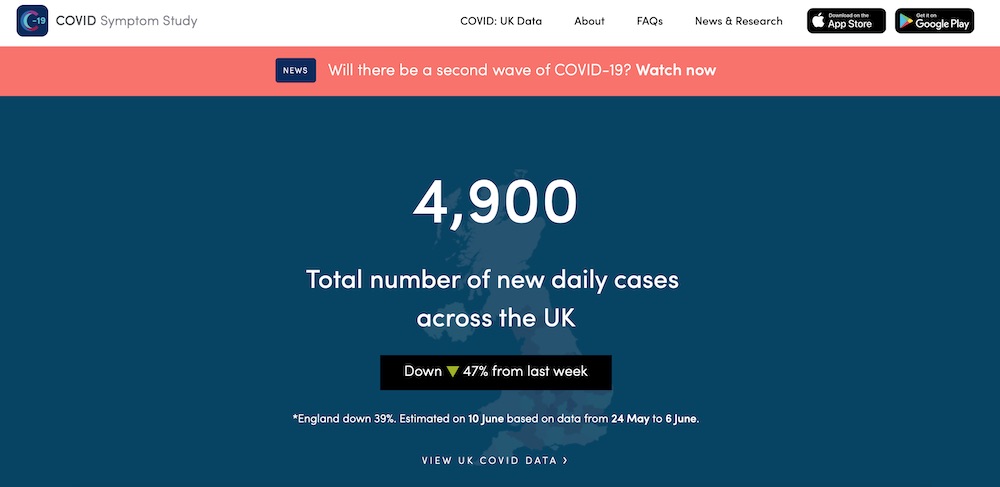
Thanks
I'm grateful today for a visit from my elderly friend and his son. As the sun set, we sat in the garden and sipped tea and reminisced about how my brother blew up his school toilets. But that's another story of scientific exploration and research.
Commission/hire me: fiona [at] fionacullinan.com
